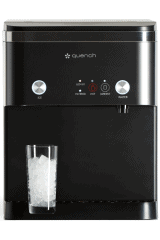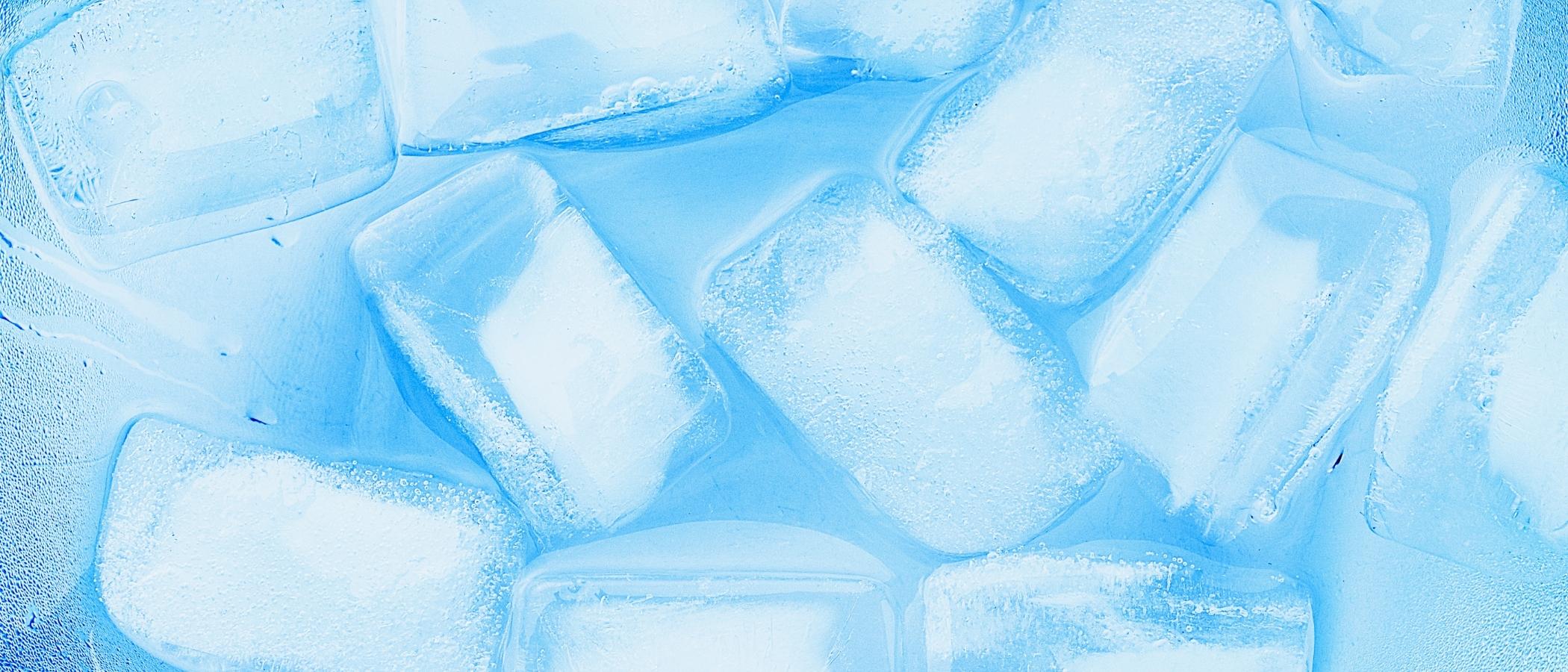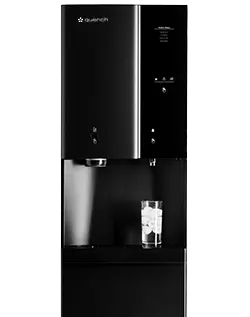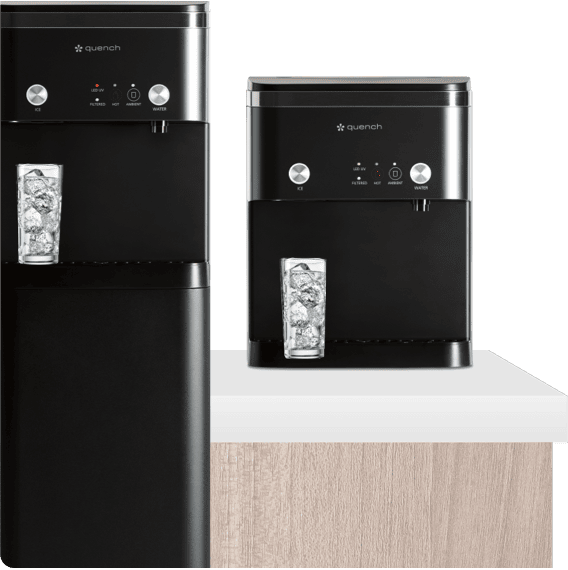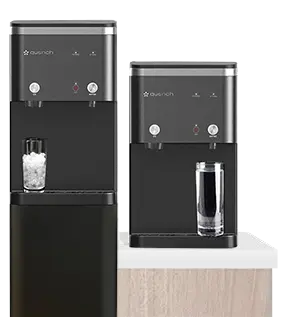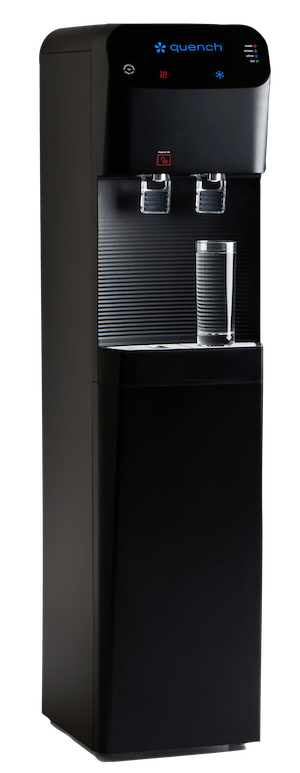Whether you’re considering an ice maker for your business or already have one, upgrading your water supply is always a smart move. It helps keep your team hydrated with cool, refreshing drinks throughout the day — boosting your productivity and efficiency. But if the ice has a bad taste or strange smell, something may be off. Because this can quickly hamper workplace hydration, it’s important to figure out what’s causing the issue and fix it fast.
Read on to find out why your ice might taste bad — and how to solve it.
Why Bad-Tasting Ice Is a Big Problem for Your Business
Bad-tasting ice can significantly harm your business. How? When ice affects the flavor of your beverages, it can lead to unhappy customers and potential lost sales; not to mention it’s also a red flag for possible health risks, like contamination from bacteria, mold, or chemicals. Plus, poor-quality ice reflects badly on your business, signaling a lack of attention to detail and even potentially damaging your reputation.
Simply put, addressing these issues with an advanced commercial ice machine not only improves customer satisfaction but also protects your business’s credibility and health standards.
If you suspect bad ice, here are some signs to watch out for:
- Metallic taste: Often due to old or rusted equipment.
- Chemical or chlorine taste: Indicates water quality issues or improper filtration.
- Moldy or musty odor: Suggests mold growth or old ice.
- Sulfur ice smell: May result from high sulfur content in water.
- Cloudy or discolored ice: Points to impurities in the water or a dirty ice maker.
5 Reasons Why Your Ice Tastes Bad
Before you can fix any issues with your ice maker, it’s important to understand why they’re happening. Here are five common causes of bad tasting ice:
1. A Dirty Water Filter
Filtered, clean water and ice are great for improving your workplace’s water quality, but filters have their limits. The ice filter purifies the water that makes your ice cubes, so if you’re noticing cloudy ice or a bad taste, it’s likely time to change it.
Hygiene Food Safety notes that bacteria like Listeria monocytogenes can survive in ice cubes, meaning infrequent filter changes could harm your employees’ and customers’ long-term health. Regularly changing your filter is essential for not only great-tasting ice, but also preventing mold and bacteria that can impact your business’s productivity, engagement, and absenteeism.
The recommended time for replacing your filter varies by model and usage, so it’s important to monitor your ice quality and change the filter as needed to ensure fresh ice year-round.
2. Infrequent Use and Lack of Maintenance
Another reason your ice might taste off is that you’re not using your ice maker enough. Many people don’t realize that infrequent use can cause ice to go stale. Over time, your once clear, fresh ice can absorb odors from the freezer or the ice bin itself.
In addition to lack of use, irregular maintenance can be a culprit. If the machine isn’t cleaned and maintained regularly, buildup from minerals, mold, or bacteria can develop, further impacting the taste and quality of your ice. Even if you’re not using the machine daily, routine cleaning is key to preventing unpleasant odors or flavors from creeping into your ice supply.
Fortunately, the fix is simple. Just dump the old, stale ice and start using your machine more regularly. If you find you don’t need as much ice as you thought, you might consider a smaller ice maker. Also, if you suspect the ice bin or ice cube tray is contributing to the smell, consistent cleaning will help ensure better-tasting ice.
3. A Bad Water Supply
Your water supply could also be the issue. Water quality can vary significantly depending on location, meaning different minerals and pollutants from your source could end up in your ice. If your ice has a metallic taste or an unpleasant smell, don’t rule out the tap water itself as the cause.
Fortunately, with a good water filter, you can remove contaminants and unwanted elements from both your drinking water and your ice supply.
4. Chemical Contamination
Chemical contamination can also affect your ice’s taste, often from exposure to cleaning agents or other chemicals. If these substances are stored near your ice maker or come into contact with your machine’s components, your ice might end up with a chemical taste or odor. To prevent this, keep all cleaning supplies away from the ice maker and regularly check for any signs of chemical residue after cleaning.
5. Old, Stale Ice
Ice that’s been sitting around for too long can develop an unpleasant taste. As ice melts and refreezes, it can become stale and absorb flavors from the freezer or the ice bin. To keep your ice tasting fresh, regularly discard old ice and produce a new batch. Using your ice maker more frequently can help prevent ice from becoming stale and ensure a consistent supply of clean, fresh-tasting ice.
Best Practices to Prevent Bad Tasting Ice
An unpleasant smell or bad taste can quickly discourage employees and customers from drinking water, which can hurt your business’ hydration and productivity. Plus, the American College of Nutrition reports that dehydration can lead to memory loss, poor focus, slow information processing, irritability, headaches, and more.
Luckily, resolving ice maker issues and improving hydration is easier than you might think. Here are the best practices to keep your ice clean and tasting great:
- Monitor for cloudy ice and odd odors: If you spot cloudy ice or strange smells, address them immediately. Clean your ice maker and ensure proper ventilation to clear out impurities and bad odors.
- Regularly clean ice cube trays and bins: Keep your ice cube trays and bins spotless by cleaning them frequently. This helps prevent the buildup of bacteria and mold that can affect ice quality.
- Replace the water filter: Change your water filter regularly to maintain ice quality. A fresh filter removes contaminants and keeps your ice tasting clean.
- Use your machine frequently: Run your ice maker regularly to avoid stale ice. Consistent use helps keep the ice fresh and prevents it from absorbing any unwanted odors.
- Check your water supply: If your ice tastes off, investigate and adjust your water supply. Use filtration if necessary, so you can rest assured that your ice is made from clean, high-quality water.
One of the most effective ice solutions is renting a commercial ice machine, which takes much of the hassle off your plate. With a reliable machine and a dependable vendor, you can ensure your ice maker stays clean. Providers like Quench® offer all-inclusive services such as tank cleanings and filter changes, along with two preventive maintenance visits per year. Moreover, these advanced ice makers come equipped with built-in filtration and sanitization systems, ensuring your employees and customers have access to clean ice whenever they need it.
Choosing a Reliable Ice Machine and Dependable Vendor
If you’re considering an ice maker for your business, choosing a reliable machine and vendor can make all the difference. By opting for a commercial ice machine from a provider like Quench, your business benefits from high-quality solutions and dependable service year-round. With a top-tier machine, you’re far less likely to encounter problems, and if issues do arise, you’ll have quick access to the support you need.
Getting a high-quality ice maker from a trusted vendor can bring several benefits to your business, including:
- Increased workplace hydration
- More engaged and productive employees
- Improved customer satisfaction
- Enhanced employee and consumer well-being
- Heightened focus and increased alertness
Improving Your Ice and Water Supply With a Machine From Quench
Understanding why your ice might taste off or have a strange odor, and knowing how to fix these issues, is crucial for providing the best ice quality for your business. An effective way to prevent these problems is by choosing a top-tier ice maker solution from Quench.
Our range of commercial ice makers — including freestanding models, countertop options, and more — uses advanced filtration and sanitization technologies similar to those in our bottleless water coolers. You can explore a variety of Quench machines that suit your individual capacity needs.
Ice makers are an increasingly essential amenity for any business, helping promote workplace hydration. If you’re ready to upgrade your ice supply with advanced solutions from Quench, use our product finder to discover the perfect machine for your business or get a free estimate to get started.
